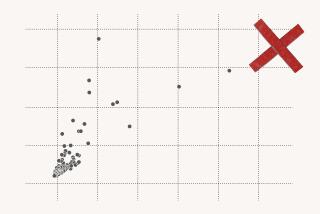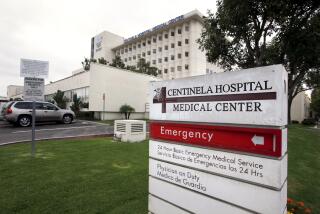New audit of VA finds 3-month waits for medical appointments
More than 57,000 veterans have waited at least three months for an appointment at Veterans Affairs facilities, according to a new audit that sparked further outrage Monday on Capitol Hill.
“It makes me sick knowing that our returned warriors are subject to begging for care when they come home,” Rep. Tulsi Gabbard (D-Hawaii) said after the audit found that veterans in the Honolulu VA system faced the longest average wait for a new appointment for primary care — about 145 days.
The audit’s results came as the inspector general announced at a House hearing that his office had widened its investigation to include 69 sites across the country where employees may have falsified records to conceal long waits for care. That number is in addition to the Phoenix VA, which was the epicenter of the scandal and the focus of an inspector general’s investigation into whether patients died as a result of delays in care.
The audit provided the first details of wait times at hundreds of VA facilities across the country, angering lawmakers from both parties as they touched on hospitals close to home.
More than 6 million appointments are currently scheduled. More than 95% of those are within 30 days, and established patients can generally get appointments quickly, the audit found.
But it was a different story for new patients.
In Los Angeles, veterans who hadn’t used the VA in more than two years had to wait an average of 56 days for a primary care appointment and 55 days for specialty care, according to the audit.
It took an average of 39 days for new patients in the L.A. system to see a mental health specialist. That was typical of facilities nationwide, where the waits for mental healthcare for new patients ranged from 17 days in Canandaigua, N.Y., to 104 days in Durham, N.C.
In the Los Angeles, Long Beach, Loma Linda and San Diego VA systems, 2,667 new patients had been told that no appointments were available within 90 days, according to the audit.
Three Southern California facilities were flagged for further review and investigation: the Sepulveda Ambulatory Care Center in North Hills, the VA Escondido Clinic and the VA Imperial Valley Clinic in El Centro. A senior VA official said the additional reviews were prompted by findings that scheduling staffers received instructions to enter a date different from the one requested by the patient.
“This audit is absolutely infuriating, and underscores the depth of this scandal,” said Paul Rieckhoff, chief executive officer of Iraq and Afghanistan Veterans of America.
Nearly 64,000 veterans have enrolled in the VA system over the last decade but have not been seen for an appointment, according to the audit.
“This is not just ‘gaming the system,’” said Dan Dellinger, national commander of the American Legion. “It’s Russian roulette and veterans are dying because of the bureaucracy.”
Separately, the Government Accountability Office issued a report on delays in veterans receiving outpatient specialty care, finding that 43% of a sampling of patients at five VA facilities did not receive the requested care.
The GAO found one case, a gastroenterology consultation, in which it took 210 days for the patient to receive the care. In another case, a patient was diagnosed with aneurysms in September and scheduled for surgery in November, but the operation was canceled “due to staffing issues.”
In December, the patient was referred to a local hospital, but the patient’s information was lost. A day before the surgery was rescheduled, in mid-February, the patient died.
The audit of 731 sites follows an interim report from the inspector general that found a systemic problem nationwide in scheduling veterans care in a timely manner. That investigation, which could lead to criminal charges, is scheduled to be completed in August.
During a House Veterans Affairs Committee hearing Monday night, Richard J. Griffin, the acting inspector general, suggested it might take VA employees losing their jobs or facing prosecution before the gaming comes to an end.
“Once someone loses his job or gets criminally charged for doing this, it will no longer be a game,” he told the committee. “That will be the shot heard around the system.”
The audit, ordered by former VA Secretary Eric K. Shinseki before his resignation last month, found that 13% of the scheduling staffers received instructions to enter a date different from the one requested by the patient. In some cases, “pressures were placed on schedulers to utilize inappropriate practices in order to make waiting times appear more favorable,” the audit found.
It concluded that the department’s goal of trying to schedule veterans within 14 days of their desired appointment dates was “simply not attainable.” Creating the expectation that patients could be seen that quickly represented “an organizational leadership failure,” it said.
The 14-day goal is believed to have contributed to VA staff falsifying records to mask long waits.
Sloan Gibson, the acting VA secretary, announced steps he is taking in response to the audit, including contacting thousands of veterans who have been waiting for care and getting them scheduled at a VA facility or with a private doctor. In some cases, mobile medical units will be dispatched to VA facilities to help reduce waiting times.
The VA also is removing the 14-day scheduling goal from employee performance contracts to “eliminate incentives to engage in inappropriate scheduling practices” and is suspending senior executive bonuses for this year.
During the Monday hearing, Philip Matkovsky, the VA’s assistant deputy undersecretary for health for administrative operations, apologized for the wait times.
“Americans veterans deserve better,” he said. “This is a breach of trust. It is irresponsible, it is indefensible and it is unacceptable.”
The audit is likely to stoke debate on Capitol Hill over whether the VA has enough funding.
The House is expected to take up a bill that would offer veterans unable to obtain a VA appointment within 30 days the option of seeking private care at the department’s expense.
The Senate is expected to take up a bill that would allow veterans facing long waits at VA facilities to seek care from private doctors, expand the VA secretary’s authority to fire or demote staff for poor performance, establish 26 new VA health facilities in 18 states, including California, and provide $500 million to hire new VA doctors and nurses.
Simon reported from Washington and Zarembo from Los Angeles.
More to Read
Start your day right
Sign up for Essential California for news, features and recommendations from the L.A. Times and beyond in your inbox six days a week.
You may occasionally receive promotional content from the Los Angeles Times.








